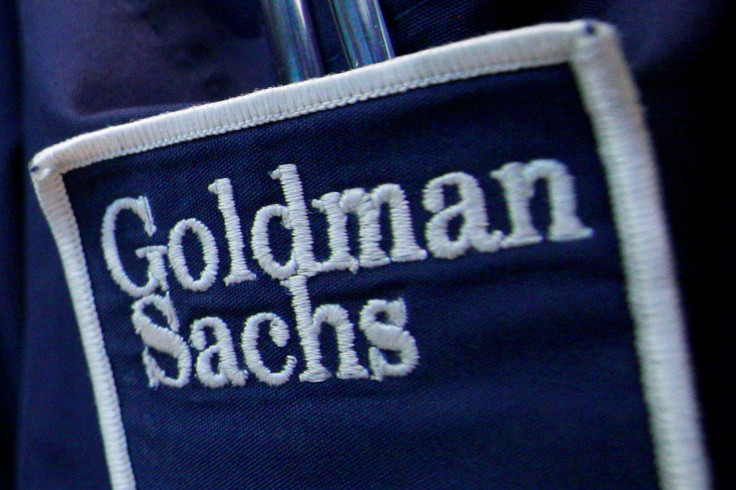Goldman Sachs — It's Not Just for the Wealthy Anymore

Goldman Sachs (NYSE:GS) recently announced that its fast-growing Marcus platform was working on a wealth management product designed for all investors -- not just Goldman's traditional high-net-worth clientele.
This article originally appeared in The Motley Fool.
It's becoming clear that Goldman Sachs has big plans in consumer banking, and that personal loans, savings accounts, and investment products are likely to be just the beginning. I recently had the chance to speak with Dustin Cohn, head of brand and marketing communications for Marcus, to get some insight into where Marcus could be heading over the next few years and beyond.
Matt Frankel: You recently announced that the firm will bring together the consumer digital finance business with the investment management business. What does this mean for the future of Marcus?
Dustin Cohn: With this step, we'll have a broader mandate to grow our customer base, expand distribution channels and launch new products that leverage the firm's existing strengths and capabilities globally. We plan to launch a broader wealth management offering -- combining Marcus' digital capabilities with the more established sales channels and products currently housed within the Investment Management Division.
Frankel: Technology-oriented financial platforms like Marcus seem to be targeting younger consumers and savers. Will the new wealth management offering be targeted at millennials?
Cohn: You may be surprised to hear this, but our saving and lending products actually skew toward the older end of the age spectrum. We target good-to-excellent credit borrowers, for example, and people with a long-established credit history tend to fit in this category. Don't get me wrong -- we target younger age groups as well; our recently acquired Clarity Money app especially resonates with them.
So I think a wealth management platform will do well across all age groups. As with other Marcus products, our goal is to offer solutions that are simply better than what people can find elsewhere, regardless of their age.
Frankel: The personal lending platform on Marcus recently reached $4 billion in loans. While this is certainly an impressive milestone to reach after just two years, it's still on the lower end compared to many other lenders. Do you still see personal lending as a future growth driver?
Cohn: I absolutely see personal lending as a mostly untapped market for us. For example, 77% of consumers with good credit and credit card debt have no idea that you can use funds from a personal loan to pay off credit card debt. I think it's fair to say that when these consumers realize that not only can this be done, but it could save them hundreds or even thousands of dollars in interest, a good number of them would jump at the opportunity.
Frankel: On the savings side of the existing business, you now have nearly $30 billion in deposits. Do you think this side of the business has been maxed out?
Cohn: Not at all. Just like with the personal lending statistic I just mentioned, 60% of Americans with savings accounts have no idea what their interest rate is. And, in many cases, it's 0.1% or less. Meanwhile, our Online Savings Account has a rate of 2.05% right now. It's a no-brainer, but our biggest challenge, as well as our biggest opportunity, is educating our target consumers.
Frankel: In a presentation over the summer, then-President David Solomon mentioned several other areas Marcus could expand into. This included things like credit cards, mortgages, insurance products, auto loans, checking accounts, and more. Can you give us some insight into where your next avenue of expansion might be?
Cohn: I can't get into specifics here, but I will say that we're constantly evaluating the marketplace in all of those areas to see where we may be able to offer a more consumer-centric solution compared to those that currently exist. This is what we feel we've done in personal lending and savings accounts, and what we hope to do with wealth management. Beyond that, we'll have to wait and see.
However, as I said, I still see tremendous runway with our existing business segments, so there's no lack of growth opportunity even without introducing new product lines.
Frankel: Do you have plans to open physical branches for Marcus? It would seem that not having some sort of physical presence could put a wealth management platform at a disadvantage to companies such as TD Ameritrade and Fidelity, both of which have large branch networks.
Cohn: We have no plans to form a physical branch network of any kind. In fact, our lack of branches is one of the reasons we're able to offer higher interest rates on deposit products than many competitors.
Additionally, we feel that our online and phone customer service is far superior to that of our competitors. We have U.S.-based call centers, and customers don't have to sort through automated menus or suffer through long hold times when calling us -- in fact, when you call Marcus, a real live person will answer your call. One of the main reasons people go to physical branches is because the alternative means of customer service are aggravating or inefficient, and we've done a great job in that area.
Matthew Frankel, CFP has no position in any of the stocks mentioned. The Motley Fool has no position in any of the stocks mentioned. The Motley Fool has a disclosure policy.





















